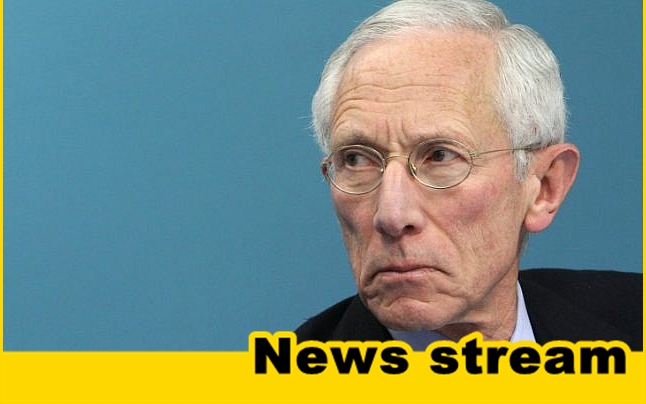Former vice chairman of the Federal Reserve Stanley Fischer on Sunday in Tel Aviv strongly criticized President Donald Trump, saying his trade policies were hurting global economies.
“I am very, very worried,” Fischer, also former governor of the Bank of Israel, said in a panel of former Israeli central bankers in Tel Aviv. “The problem about the approach of Trump to trade, is that he doesn’t understand trade,” he said, speaking in a heavily accented Hebrew.
Trump simply “doesn’t understand, and if he does, he hides the fact,” Fischer said scathingly.
“Almost every day, the US takes a step to weaken the global trade system and economic international relations,” Fischer said. Trump’s “games” of threatening to raise taxes and then rescinding his decisions, give the impression of “not being serious.” But “it is serious, it causes a lot of damage to the world economy…this is something that is almost intolerable, but it is happening and it is continuing to happen and the situation is deteriorating all the time.”

Fischer said he believes that the Fed’s last interest rate hike last year would probably not have happened if Trump had not interfered. The hike was done only to prove to the world that the Fed was not under the influence of Trump. “He caused them to say: how can we prove we are not getting instructions from him,” Fischer said, adding that he believes the Fed would not have raised rates otherwise. The Fed raised rates four times in 2018, the last time in December 2018, to 2.5 percent.
Fischer spoke at a “Conference of Governors” event in Tel Aviv, organized by the Globes financial paper. The panel included two other former governors of the Bank of Israel, Jacob Frenkel and Karnit Flug, and the current governor, Amir Yaron.
Frenkel said the trade war between the US and China, the world’s two largest economies, was a major risk to global economies today. This is causing a lot of worry he said, because “there is total uncertainty in the economic system.”
“Imagine you are getting onto a plane, and the two pilots are fighting,” he added. What would you do? You’d “fasten your seat belt,” and certainly not invest, he said.
At the event, Amir Yaron, the current governor of the Bank of Israel said that under certain conditions the central bank was prepared to intervene in the foreign exchange market and buy foreign exchange to keep the shekel’s rise in check.
The shekel has advanced on the dollar this year, making it one of the world’s strongest currencies. The central bank has failed to intervene in the market since January. The bank has bought $90 billion of foreign exchange the past 11 years to keep the shekel in check, but has not intervened since Yaron took the reins of the bank at the end of December 2018.
“There is is a window of exchange rates that we believe to be consistent with price stability and economic activity,” Yaron said. The central bank’s policy is “constructive ambiguity,” he said, a good policy for a small economy like Israel.
“But, if and when the Bank of Israel appreciates that the exchange rate has deviated substantially from the same window that we have defined, we may well intervene in the market. And no one will receive a warning letter from us before.”
Flug said the central bank advisory role to the government is an important part of its duties and should be maintained. Governments, she said, tend to take a short-term view of the economy, whereas the central bank takes a longer-term view, she said.
Source: timesofisrael.com
See more here: news365.stream






